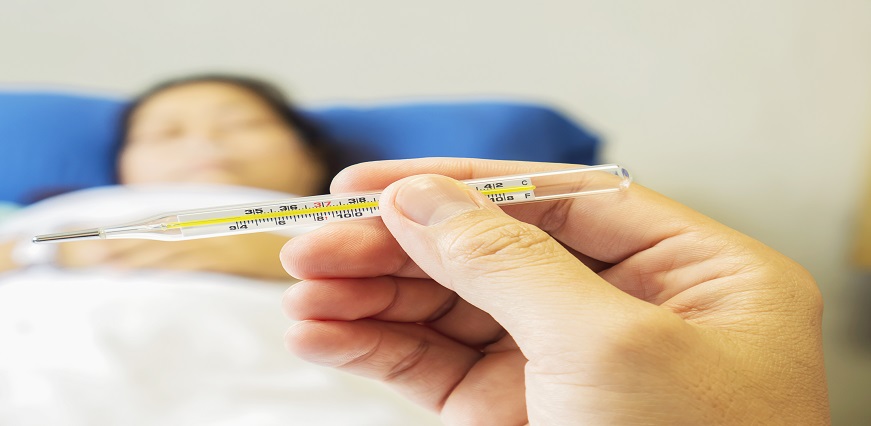





No lab centers are available in this city

Max Lab
Dec 22, 2023
A food allergy is an abnormal immune system response triggered by the ingestion of a particular food. In individuals with food allergies, the immune system mistakenly identifies certain proteins in specific foods as harmful, leading to the production of antibodies, such as immunoglobulin E (IgE). Upon subsequent exposure to the allergen, the immune system releases various chemicals, including histamine, causing allergic symptoms.
Young children are more likely to develop food allergies since their guts and immune defences are still developing. As they age, some may outgrow certain food allergies. Identifying and avoiding personal allergy triggers is key to preventing any food allergy. Further, recognising the symptoms can help in prompt treatment and mitigate the risk of a severe allergic reaction to food. Usually, peanuts, milk, soy, and wheat are a few foods that may cause food allergies.
There can be several symptoms of food intolerance, and it is always advised to seek medical attention at the first signs of food allergies. Here are some of the most common symptoms of food sensitivity:
Skin reactions - Itching, hives, red rash, swelling of the lips, face, tongue, throat, or other body parts.
Digestive problems - Stomach pain, vomiting, diarrhoea
Respiratory problems - Runny or stuffy nose, sneezing, coughing, wheezing, difficulty breathing.
Cardiovascular problems - Lightheadedness, passing out, chest pain, pale skin, blue lips or extremities.
Oral allergy syndrome - Itchy mouth, throat, lips or tongue after eating certain raw fruits or vegetables.
Anaphylaxis - A severe, whole-body allergic reaction that is rapid in onset and can cause difficulty breathing, wheezing, confusion, irregular heartbeat and unconsciousness.
The timing and severity of symptoms can vary depending on the type of food allergy, the amount eaten and the individual’s sensitivity. For e.g. milk allergy occurs when the immune system reacts adversely to proteins in milk, leading to various symptoms such as hives, gastrointestinal discomfort, or, in severe cases, anaphylaxis. Some reactions can occur within minutes to hours after exposure. Getting tested can help diagnose which foods cause allergies.
Understanding the causes is essential in the treatment and prevention of food allergy reactions. Here are the primary causes of food allergy:
A family history of allergies or asthma increases the risk of developing food allergies.
The immune system mistakenly identifies specific proteins in food as harmful, triggering an allergic reaction.
Exposure to certain environmental factors, such as pollutants or tobacco smoke, can increase the risk of food allergies.
Food allergies are more common in children as their immune systems are still developing. Some children outgrow their food allergies as they age.
Individuals allergic to one type of food may also be allergic to similar proteins in other foods. For example, those allergic to pollen may react to certain fruits and vegetables.
Allergy tests play a vital role in the accurate diagnosis of food allergy in children and adults alike. These tests are highly recommended as they build awareness, thus, preventing allergic reactions to certain types of food. Mentioned below are the commonly conducted tests to diagnose food allergies:
Skin prick test - Small amounts of potential allergens are pricked or scratched onto the skin, usually on the arm or back. If a raised, itchy bump (wheal) forms, it may indicate an allergy.
Intradermal test - Allergens are injected just underneath the top layer of skin. Similar to the skin prick test, a raised bump indicates a potential allergy. This test may be used if the skin prick test is negative.
Blood test - A blood sample is analysed to measure levels of immunoglobulin E (IgE) antibodies. Higher levels of allergen-specific IgE may indicate an allergy. Common blood tests are the RAST test and the ELISA test.
Oral test - Patients stop taking medications and are exposed to suspected allergens under medical supervision to confirm the diagnosis. Oral, inhaled, or skin challenge tests may be used.
Patch test - Potential allergen extracts are placed on the skin using adhesive patches. Reactions are examined over 48 hours.
Here are some of the key reasons why someone should get a food sensitivity test:
Identify trigger foods - Testing helps pinpoint which foods cause allergic reactions for that individual. Once the problematic foods are known, they can be strictly avoided to prevent reactions.
Improve quality of life - Avoiding allergy triggers through testing/diagnosis can greatly reduce adverse and uncomfortable symptoms and lower anxiety around food.
Assess severity - Allergy testing determines if the food allergy is mild or severe. Severe allergies increase the risk of anaphylaxis and narrowed airways. Knowing the severity level is critical for management.
Avoid misdiagnosis - Symptoms like digestive issues or skin reactions can be caused by many conditions besides food allergies. Testing confirms specific food allergic triggers.
Provide emergency preparedness - For severe allergies, identifying the food triggers allows individuals to be prepared with appropriate emergency medications like epinephrine autoinjectors.
The primary way to manage a food allergy is to avoid consuming the food that causes problems. Next is maintaining a strict avoidance diet that entails carefully examining food labels, and inquiring about ingredients when dining out. Further seeking medical advice and diagnosis from a healthcare professional is crucial for food allergy treatment.
While some food allergies cannot be prevented, certain measures can reduce the risk of developing allergic reactions:
Exclusive breastfeeding for the first six months of life may reduce the risk of developing food allergies in infants.
Introducing common allergenic foods such as peanuts and eggs early in life (around 4-6 months) may help prevent the development of allergic reactions to food.
Once a food allergy is diagnosed, avoiding the allergen is crucial in preventing allergic reactions.
Carefully read food labels to avoid accidental exposure to allergens.
Individuals with severe food allergies should carry antihistamines and epinephrine auto-injectors to manage allergic reactions.
One can book a food allergy blood test at Max Lab, a trustworthy diagnostic partner that one can count on. The best part is that you can comfortably get tested from your home, thanks to our doorstep sample collection service. So, why take the risk when you can take the test? Book an IGE food allergy test with Max Lab in less than a minute.












Sign up takes less than 60 secs and gives you access to your offers, orders and lab tests.
Looks like you are not registered with us. Please Sign up to proceed
OTP will be sent to this number by SMS
We have successfully received your details. One of the agents will call you back soon.
 To reach our help desk call 9213188888
To reach our help desk call 9213188888
No Lab Centers are available in this city
Looks like you are not registered with us. Please Sign up to proceed
OTP will be sent to this number by SMS
Not Registered Yet? Signup now.Looks like you are not registered with us. Please Sign up to proceed





 7982100200
7982100200.png)
Comments